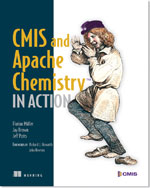I have published an updated version of the Creating Custom Actions in Alfresco tutorial. Similar to the recently updated Working With Custom Content Types in Alfresco tutorial, this version has been updated to match the refactored code which now assumes you are using the Alfresco Maven SDK to produce AMPs and that you are using Alfresco Share as the user interface. I’ve removed all references to Alfresco Explorer.
The Custom Actions tutorial covers:
- What is an action
- How to write your own custom action in Java
- How to invoke the custom action from a rule or from the Alfresco Share UI
- Configuring an evaluator to hide the UI action when certain conditions are true
- Configuring an indicator to show an icon in the document library when documents meet certain conditions
- Writing and executing unit tests with the Alfresco Maven SDK
If you aren’t familiar with the Alfresco Maven SDK and you need help diving in, take a look at this tutorial.
All of the tutorial source code and text for the Alfresco Developer Series of tutorials is on GitHub. Please fork the project, make improvements, and send me pull requests.
Next on the to-be-updated list is the Custom Behaviors tutorial. I expect that to go live sometime next week.

 co-authored with Florian Mueller (SAP) and Jay Brown (IBM),
co-authored with Florian Mueller (SAP) and Jay Brown (IBM),